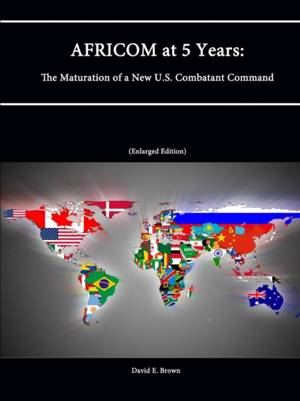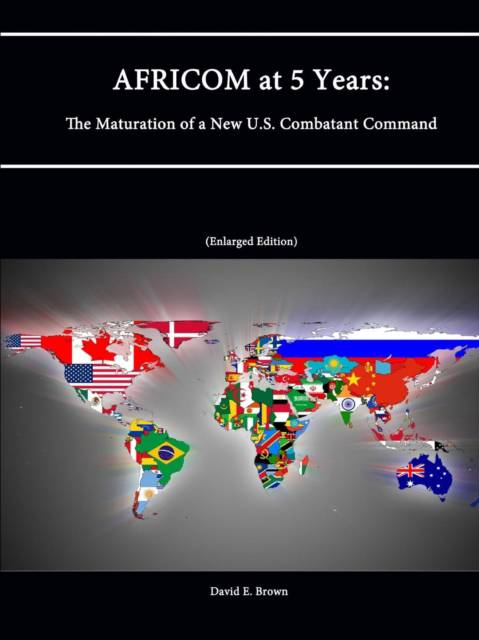
- Afhalen na 1 uur in een winkel met voorraad
- Gratis thuislevering in België vanaf € 30
- Ruim aanbod met 7 miljoen producten
- Afhalen na 1 uur in een winkel met voorraad
- Gratis thuislevering in België vanaf € 30
- Ruim aanbod met 7 miljoen producten
Zoeken
AFRICOM at 5 Years
The Maturation of a New U.S. Combatant Command
David E Brown, Strategic Studies Institute, U S Army War College
Paperback | Engels
€ 27,95
+ 55 punten
Omschrijving
The U.S. Africa Command (AFRICOM), newest of the six U.S. Department of Defense geographical combatant commands (CCMDs), was created in 2007 amid great controversy in both Africa and the United States over its location and mission. Over the last 5 years, AFRICOM has matured greatly, overcoming much of the initial resistance from African stakeholders through careful public messaging, and addressing most U.S. interagency concerns about the Command's size and proper role within the U.S. national security/foreign policy community. This Letort Paper describes the geostrategic, operational, and intellectual changes that explain why AFRICOM was created, and debunks three myths about AFRICOM: that it was created to "exploit" Africa's oil and gas riches, "blocks" China's rise in Africa, and that France "opposes" AFRICOM. The author concludes by raising five issues important to AFRICOM's future: 1) allocated forces to carry out short-term training engagements in Africa;...
Specificaties
Betrokkenen
- Auteur(s):
- Uitgeverij:
Inhoud
- Aantal bladzijden:
- 124
- Taal:
- Engels
Eigenschappen
- Productcode (EAN):
- 9781304866431
- Verschijningsdatum:
- 2/02/2014
- Uitvoering:
- Paperback
- Formaat:
- Trade paperback (VS)
- Afmetingen:
- 216 mm x 279 mm
- Gewicht:
- 303 g

Alleen bij Standaard Boekhandel
+ 55 punten op je klantenkaart van Standaard Boekhandel
Beoordelingen
We publiceren alleen reviews die voldoen aan de voorwaarden voor reviews. Bekijk onze voorwaarden voor reviews.











